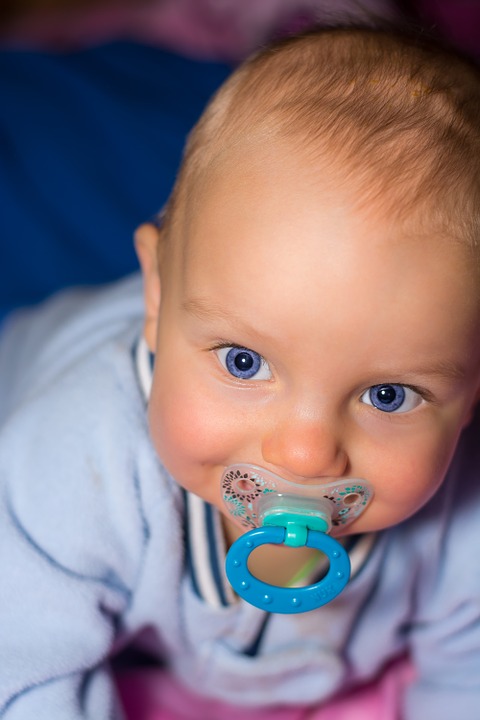There is no right or wrong way when it comes to deciding whether or not you should give your baby a dummy, only what’s right for you and your baby. When it comes to dummies, there’s a smattering of opinions found across the internet but each side has its advantages. Here, we’re presenting everything you need to know about dummies, so you can make a decision that is right for you and your child.
What is a dummy?
Dummies are also referred to as pacifiers, binkies and soothers, and are used to help relax a restless baby. A dummy has a silicone or rubber teat attached to a plastic mouth shield and a handle, which prevents them from swallowing or choking on it. There are a variety of dummies available and if you’re worried about your baby’s teeth and jaw development, you can purchase orthodontic dummies which have flatter teats.
What age can I start giving my baby a dummy?
It’s advised to steer clear of giving your baby a dummy until they are at least one month old and have a hang of breastfeeding (if that’s what you have decided to do). It’s important your baby takes to breastfeeding first, because dummies might disrupt their feeding.
When is my baby too old for a dummy?
If you give your baby a dummy when they are one month of age and remove it when they are three months, it’s likely they won’t notice, but if you allow them to have it for a year, it can be more difficult to wean them off their dummy.
Your child becomes ‘too old’ for a dummy when their teeth begin to grow – it is important to remove the dummy at this vital stage because it can cause issues and make your child feel less inclined to begin talking.
Why some parents use dummies
Babies find sucking a dummy soothing and this generally helps them to relax when they’re feeling fidgety. A dummy can usually provide instant relief for a baby when they’re crying before bedtime and can help them drift off to sleep.
Benefits of using a dummy:
- Dummies encourage timely bed routines
- Soothes your baby when nothing else will
- Reduces risk of SIDS
- Distracts babies from distressing events, such as injections
- Encourages feeding in mothers with PPD
Why some parents don’t use dummies
Some parents will opt out of using dummies because they’re not a must and can cause interference with feeding, it can also be difficult to wean them off the dummy when they begin teething.
Drawbacks of using a dummy:
- Parents may miss the signs of when your baby needs to feed
- If your baby keeps in a dummy, they’re less likely to babble and experiment with sounds
- Can lead to stomach infections if the dummy isn’t cleaned regularly
- Leaning heavily on the use of a dummy can cause dental and jaw issues, so it’s important to limit the use of a dummy
For over 30 years, Tiny World has been caring for babies and children between 6 weeks to 11 years of age, providing a safe, secure and fun place for children. We help children to learn new skills and develop new friendships. We offer free places for children aged between 2 and 4, and funding is available for those with the Early Years Grant. Speak with our friendly team to know more today.
